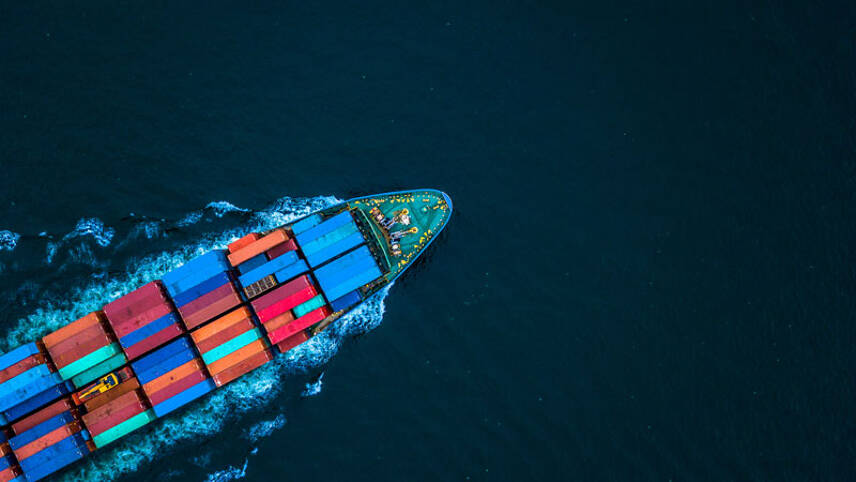Register for free and continue reading
Join our growing army of changemakers and get unlimited access to our premium content

Stock image. Roughly 90% of global trade is done by sea and the shipping sector generates 3% of global annual emissions
The Zero-Emission Maritime Buyers Alliance, which launched earlier this year, has this week issued a call for shipping operators to begin offering new zero-emission services. In doing so, it is promising these shipping companies the support of big-name manufacturers and retailers.
The Alliance has launched a Request for Proposals (RfP) for 600,000 20-foot shipping containers to be transported over a period of three years, from 2025 if possible. Each journey will be up to 6,000 nautical miles.
Shipping providers will need to prove that they can achieve at least a 90% reduction in lifecycle emissions compared to the use of traditional fossil fuels. These reductions will need to be achieved in the mid 2020s – investments in new fuels and alternative technologies for the future will not be sufficient.
The Alliance has stated that it will provide a “green premium” to account for the fact that low-carbon fuels are more expensive than fossil fuel options. The level of the premium will be negotiated between Alliance members and shipping providers.
Amazon, the Aspen Institute, Patagonia and Tchibo co-founded the Alliance. Since it was set up in March, more than a dozen other organisations have signed up including Bauhaus, Electrolux Group, Ikea, Levi Strauss, Lululemon, Meta, New Balance, Nike and Schneider Electric.
A statement from the Alliance explains that the RfP is “focused on stimulating a new marketplace for zero-emission fuels and deploying long-term, scalable solutions for the entire shipping industry”.
Alliance president Ingrid Irigoyen said: “With more than 20 climate-leading companies engaging in the Alliance’s inaugural tender process, and more to come, we’re building the business case for a surge of investment in zero-emission maritime solutions, including new fuels and technologies that are not yet commercially available.
“”Real leadership means taking action to solve problems, even the most challenging, and being willing to try innovative approaches. Advanced market commitments can be a game changer for harder-to-abate sectors like ocean shipping. I applaud our Alliance members for their leadership.”
Electrolux Group’s vice president of logistics Paolo Galli added: “The Zero-Emission Maritime Buyers Alliance allows us to come together to advance a transition we cannot facilitate on our own, and show the entire value chain that we must have a zero-emission shipping solution that is affordable, scalable, and long-lasting.”
Last month, an analysis from Ship It Zero revealed that many major retailers including Home Depot, Lowe’s and Walmart are lagging behind on decarbonising shipping, putting the delivery of their Scope 3 (indirect) emissions targets at risk. Ikea was the highest-scoring retailer.
Green shipping corridors
In other low-carbon shipping news, the UK Government has this week set out fresh measures to achieve pledges made at COP26 to establish at least six zero-emission shipping routes by the mid-2020s. The so-called ‘Clydebank Declaration’ also includes a commitment to add “many more routes” through to 2030.
A new ‘Clean Maritime Research Hub’ is being created with £7.3m of Government funding and £1.85m from universities. The Hub will see researchers at 13 universities working with more than 70 other organisations to accelerate research and development of clean technologies.
Durham University will spearhead the Hub, which is aiming to leverage at least £9.7m of private investment before March 2027. The new Hub is separate from the Net-Zero Transport for a Resilient Future Hub, which went live earlier this month with the backing of £12.5m of Government funding.
Additionally, the Department for Transport (DfT) has launched a £1.5m International Green Corridor Fund with the intention of supporting the first zero-emission shipping routes. Norway, Denmark and the Netherlands have been confirmed as the international state participants for these first corridors.
The Fund will support feasibility studies and trials. The DfT is seeking match funding from other nations and from the private sector.
Maritime Minister Baroness Vere said: “The UK’s maritime sector is a world leader in green shipping practices, but the journey towards a fully decarbonised sector by 2050 requires us to continue innovating, pushing forward and building on that status.“


Please login or Register to leave a comment.